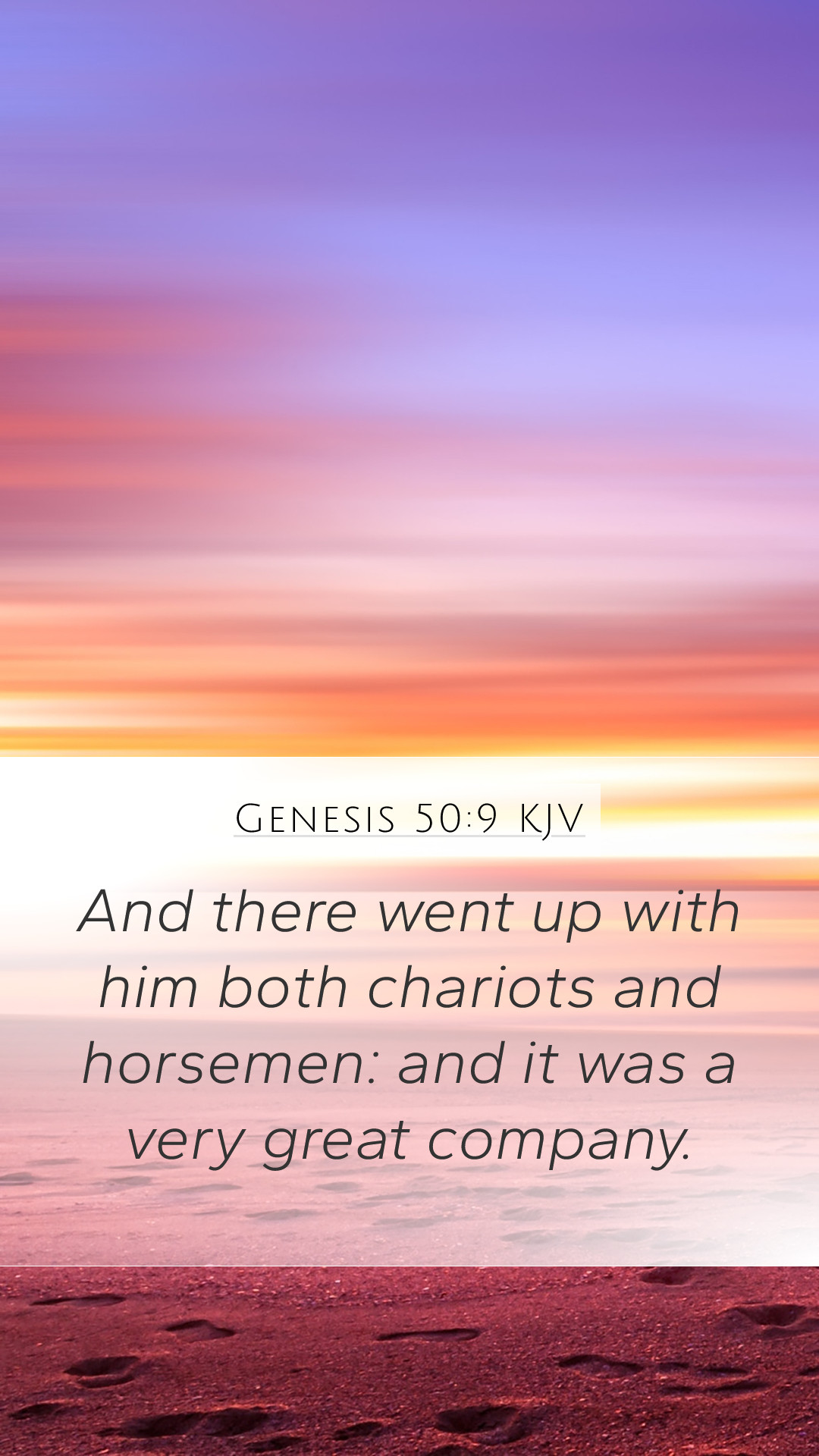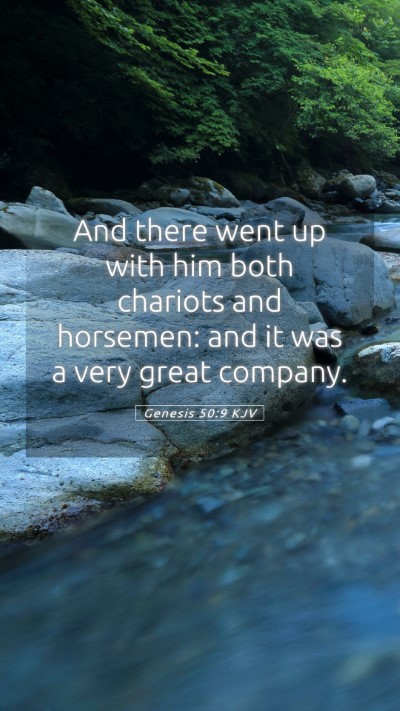Understanding Genesis 50:9: A Comprehensive Commentary
Genesis 50:9: “And there went up with him both chariots and horsemen: and it was a very great company.”
This verse closes the narrative of Jacob's burial in Egypt. Here, we see Joseph, who had attained great power in Egypt, preparing for the final honors to be given to his father, Jacob. The reference to chariots and horsemen indicates the importance and high status given to this procession.
Insights from Public Domain Commentaries
Matthew Henry's Commentary
Matthew Henry emphasizes the significance of this grand funeral procession. He notes that the presence of chariots and horsemen not only signifies Joseph’s elevated position but also serves to honor Jacob, reflecting the respect and influence Joseph held in Egypt. Henry clearly indicates that such a display underlines the importance of honoring one's parents, as it was customary in ancient cultures.
Albert Barnes' Notes
Albert Barnes draws attention to the military escorts accompanying the funeral as indicative of the state machinery Joseph controlled. He interprets this as a manifestation of God’s providence, showcasing the fulfillment of Joseph’s dreams and the dramatic turn of events from his earlier struggles. Barnes expands on the idea of the overwhelming power dynamics at play, where Joseph's former trials have culminated in his present triumph. He also references the community aspect of mourning, highlighting that many joined in the procession, which is significant in biblical culture.
Adam Clarke's Commentary
Adam Clarke provides a deeper cultural context around the mourning practices of the Egyptians. He points out that such a grand procession was not merely for show but was intertwined with their views on death and the afterlife. Clarke elaborates on how the Egyptians held funerals with distinct ceremonial significance and how Jacob’s burial was a moment that amalgamated the Jewish and Egyptian traditions.
Key Themes and Analysis
- Respect for Parents: This verse encapsulates the biblical admonition to honor one’s father and mother. The elaborate funeral underscores the deep respect Joseph had for Jacob, aligning with the commandment found in Exodus 20:12.
- Divine Providence: By providing Joseph with power in Egypt, God orchestrates events that allow for a fulfilling burial that reflects Joseph's rise from adversity, which is a recurring theme throughout Genesis.
- Cultural Significance: This procession illustrates how funerals were a mix of personal grief and public display, revealing cultural insights that remain relevant for understanding ancient customs, as well as current practices.
Application in Modern Life
The significance of honoring parents is vitally applicable today. As individuals seek to interpret Bible verses, Genesis 50:9 encourages reflection on familial relationships and the respect we owe to our elders. It also prompts conversations within Bible study groups about cultural practices regarding death and honor that influence contemporary views on these matters.
Cross References
- Exodus 20:12: The commandment about honoring one’s parents.
- Genesis 37:33: Joseph’s brothers deceiving Jacob about Joseph's death.
- Genesis 46:6-7: Jacob’s journey to Egypt with his family.
Conclusion
Genesis 50:9 serves as not only a narrative about the end of Jacob's life but also a testament to the honor bestowed upon him by his son Joseph. This verse invites readers into deeper Bible study insights, emphasizing the weight of parental respect while simultaneously showcasing the overarching narrative of God's plan in the life of Joseph and Israel. The commentary by Matthew Henry, Albert Barnes, and Adam Clarke provides invaluable perspectives for those involved in online Bible study or seeking Bible study tools for enriched learning experiences.


